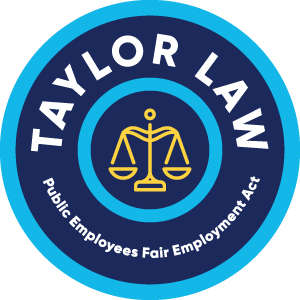 April 3, 2025 — New York State is one of 33 states that legally protects its public sector unions. Seven states have either no laws or only allow specific groups like teachers and firefighters to form unions. Nine states have laws that prohibit collective bargaining entirely.
April 3, 2025 — New York State is one of 33 states that legally protects its public sector unions. Seven states have either no laws or only allow specific groups like teachers and firefighters to form unions. Nine states have laws that prohibit collective bargaining entirely.
In New York, the Public Employees Fair Employment Act, commonly known as the Taylor Law, was signed into law in 1967 by former Governor Nelson Rockefeller and is named for George W. Taylor, a professor of industrial research who was chairman of the committee to propose amendments to the 1947 Condon-Wadlin Act.
Before the Taylor Law, New York had no legal collective bargaining rights for public workers. The Condon-Wadlin Act created penalties for public workers if they went on strike. It said striking public employees were subject to firing and could only be rehired under a three-year pay freeze and a five-year probation. However, after multiple public sector strikes, Gov. Rockefeller established a committee that, with Professor Taylor as chairman, eventually recommended a new law.
The Taylor Law establishes the right of public employees to organize and collectively bargain with their employers, affords them the right to representation by their union, sets standards for resolving disputes, and prohibits unfair and improper labor practices. The Public Employment Relations Board (PERB) was created to help administer the law.
Importantly, the Taylor Law also established that public employees do not have the right to strike. The penalties for striking by public employees vary, but often include a loss of two days pay for every day, or partial day, that a worker is on strike, as well as and other forms of discipline.
A year into the law’s enforcement, the United Federation of Teachers (UFT) went on strike, which resulted in leaders of the union being jailed for two weeks.
In 2005, a transit strike led by members of the Transport Workers Union (TWU) Local 100 resulted in a new contract for Metro Transit Authority (MTA) workers, but after finding that the members and TWU violated sections of the Taylor Law, the courts imposed a $1 million per day fine.
These penalties can come in the form of a “suspension of dues check-off,” which impacts a union’s ability to efficiently collect dues via member paychecks. PERB’s decision to impose penalties can be challenged in court, but it is historically rare for them to be overturned. The courts also impose the fine once the decision is made.
The bottom line is that under the Taylor Law, PEF must affirmatively discourage strikes among its members. As members of a union, however, there are other ways for workers to make their voices heard and express concerns about working conditions and the terms of their employment. The first step for all members is a conversation with your PEF field representative. If you don’t know who to contact, call the appropriate regional office and you’ll be connected.

